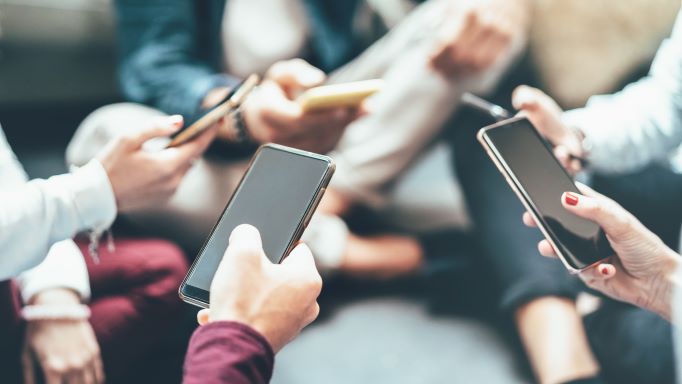
Everyone will know that the standard understanding is that too much screen time is bad for us, and that includes the small screens on our phones. Blue light is a problem, and especially when it is stimulating you in the evening when you could be winding down and getting ready for sleep. A whole lot of people will admit that they spend too much time on their device, but it turns out that may not be entirely a bad thing. It may still be taking away from your productivity and some people are definitely hooked on playing games on their phone, although it seems there may be an upside to interacting with handheld devices.
There is research that is indicating that by entering and keeping information in your phone, you can actually improve your memory for information that is not stored in your phone. Meaning the information you have to reference with brainpower alone and not with your handheld digital assistant. Research published in the journal of Experimental Psychology suggests that much of it is in the way the devices ‘take a load off’ us with having to remember as much as we do, and it frees up memory to recall even more of the less important stuff.
Whether overuse of smartphones or other digital technologies could promote cognitive decline in other contexts remains to be seen, but apparently you’re not going to have your memory become worse by using your smartphone. It might actually get better. This is something that will be of interest to any good Canadian web hosting provider like us here at 4GoodHosting given that mobile web browsing is much more dominant than desktop or notebook these days, and being focused on having a good mobile website for your business is a need.
Even if you’re Let’s use this entry to talk about smartphone use and memory though and how it may actually improve if you’re very active with yours in keeping important information.
CIRCLES
In the past neuroscience has expressed concerns that the overuse of technology could result in the breakdown of cognitive abilities and cause what they termed ‘digital dementia’. The contrary results we talked about earlier were based a memory task that 158 study participants between ages of 18 and 71 played on a touchscreen digital tablet or computer.
They were shown up to 12 numbered circles on the screen, and then needed to drag some of these to the left and some to the right. Their success was based on the number of circles that they remembered to drag to the correct side. One side was designated 'high value', and dragging a circle to this side was worth 10 times as many points as remembering to drag a circle over to the other 'low value' side.
Participants performed this task 16 times. The key stipulation though was that they had to use their own memory to remember on half of the trials but allowed to set reminders on the digital device for the other half.
Most of the participants used the digital devices to store the details of the high-value circles and their memory for those circles went up 18%. Their memory for low-value circles was also improved by 27%, even for participants who had never set reminders for low-value circles.
INFERNAL MEMORY
Using reminders also proved that many participants were doing so at a cost to their memory, because they would forget them shortly after setting reminders for them and were inherently trusting in the device to do it for them. This is what all of us do with contacts, numbers, and much more. When they were taken away, the participants remembered the low-value circles better than the high-value ones.
When people were allowed to use an external memory, their smartphone or explosive device helped them to remember the information they had saved into it. The research also showed that the device improved people's memory for unsaved information as well, and the belief is that when people had to remember by themselves, they used their memory capacity to remember the most important information. But when they could use the device, they saved high-importance information into the device and then utilized their own memory for less important information.
All interesting stuff and it may make you think about freeing up space every time you enter something into your calendar or put a new contact into your phone.














